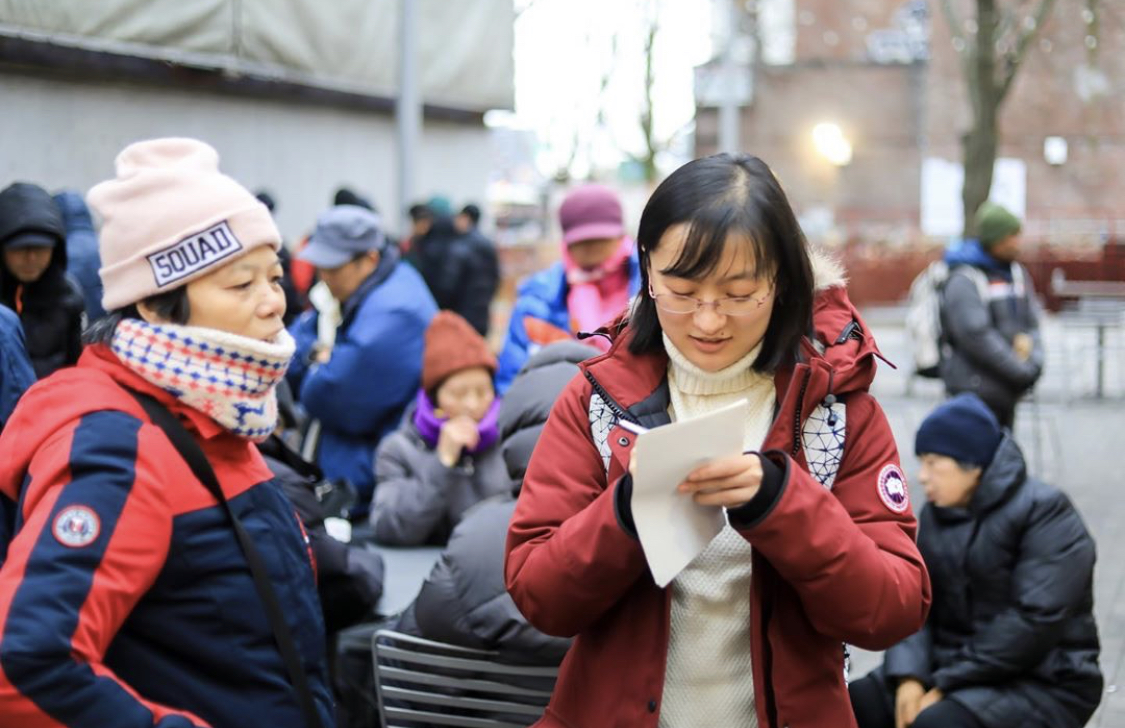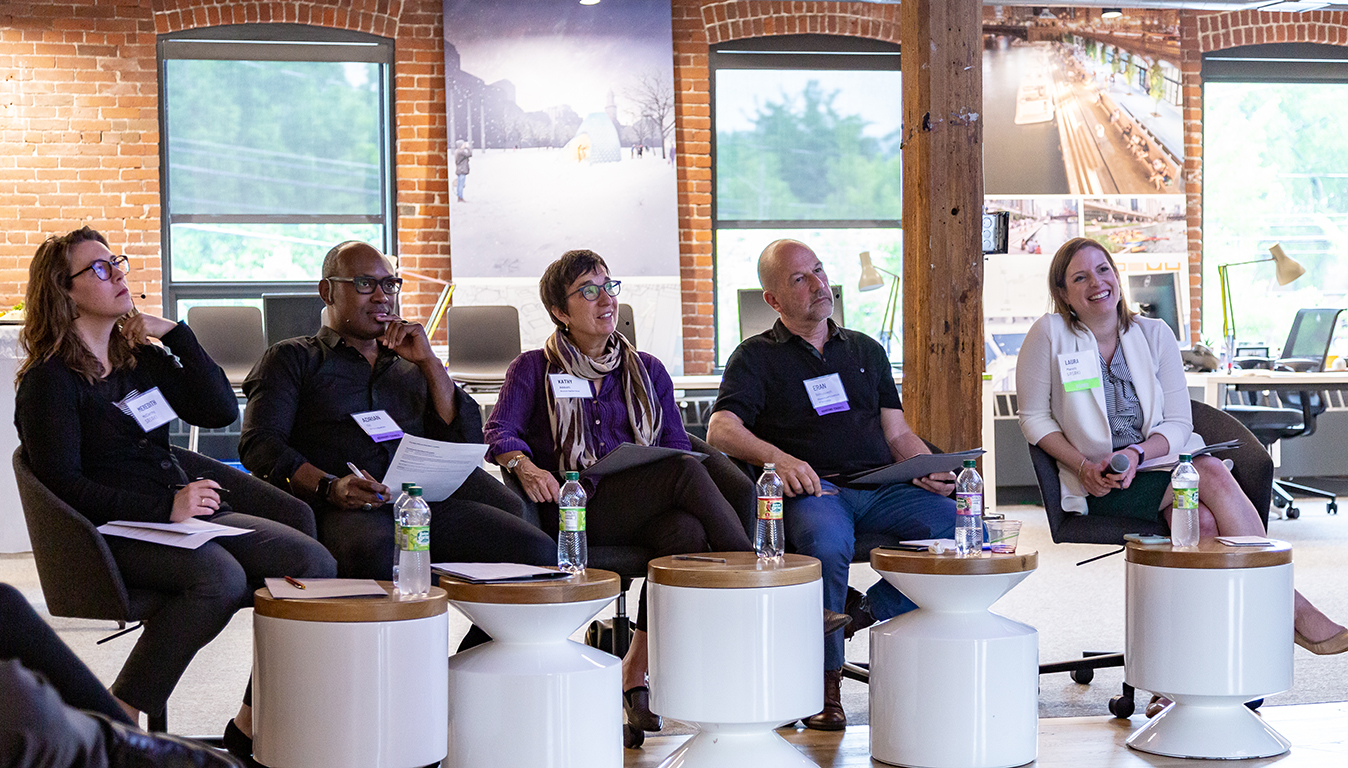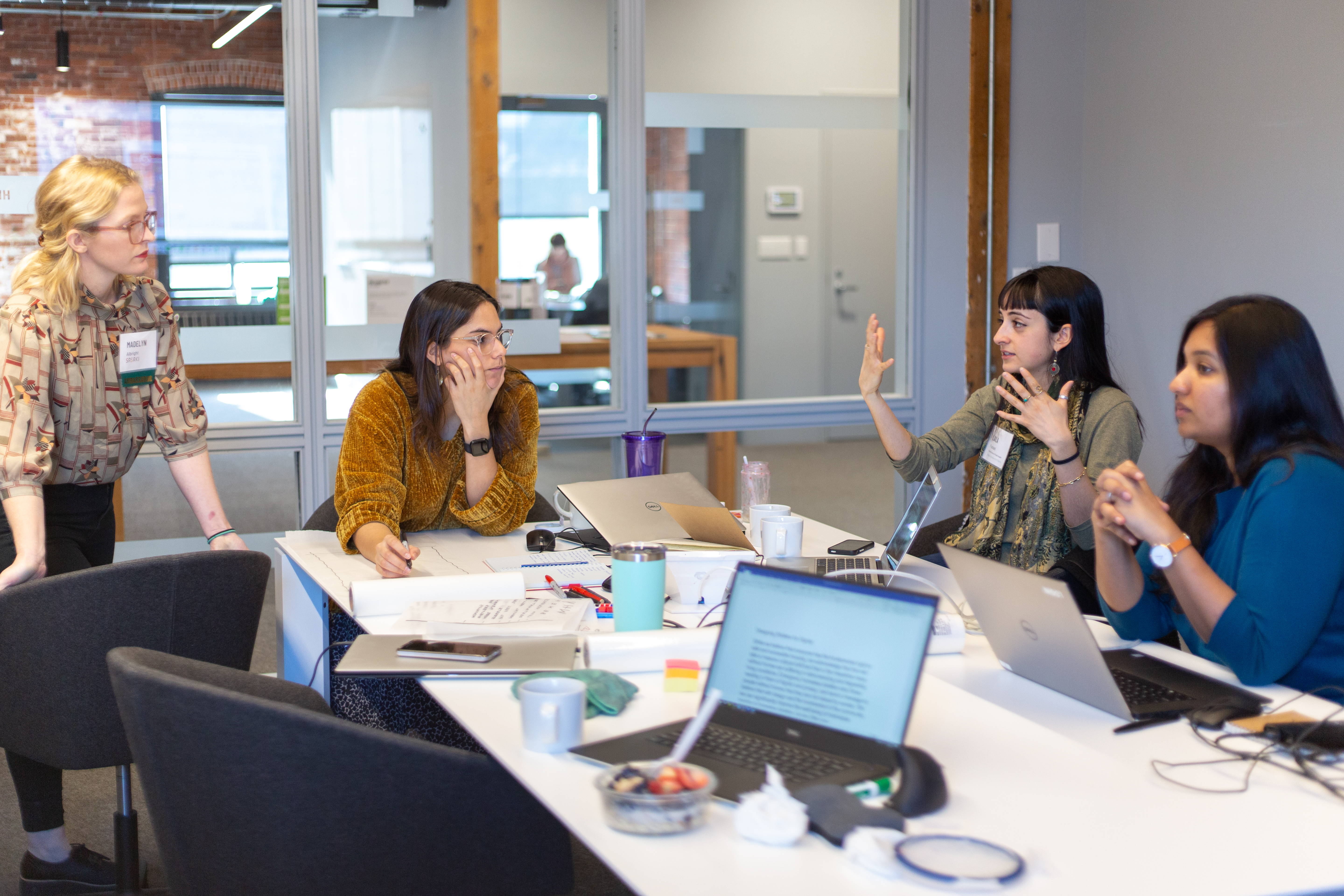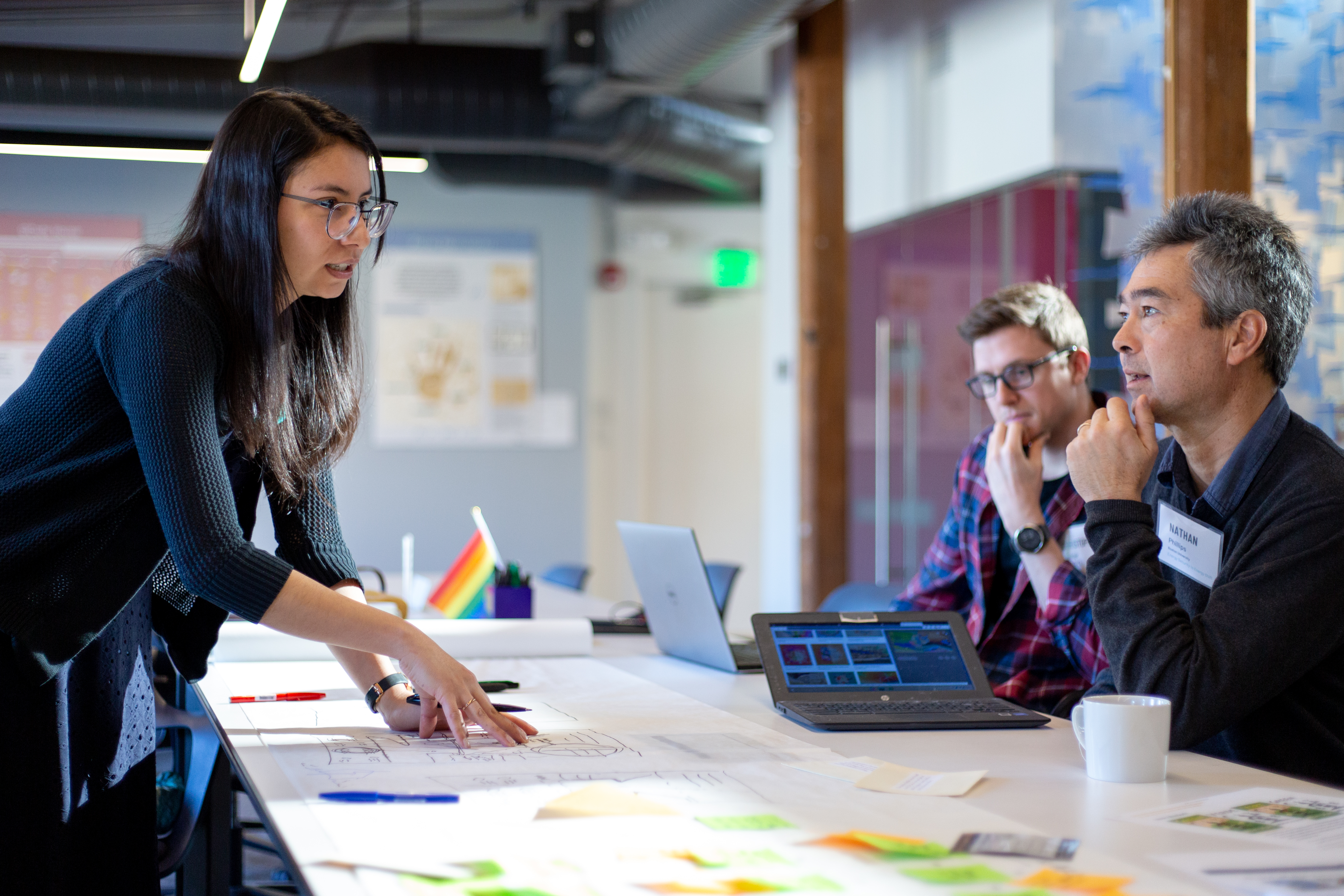Due to COVID-19, we are extending the deadline to apply for our Design Grants, and we will be conducting Pitch Night virtually. Requirements for grant winners will adapt as needed to follow state and local guidelines.
Sasaki Foundation
We leverage design to tackle global challenges—especially those that adversely affect certain communities.
Call for Proposals
If you have ideas on how to tackle climate adaptation, housing or transit inequities or displacement of residents, or how to foster community building, apply today for one of our design grants. We are particularly interested in proposals that address health and wellness in light of the current pandemic.
The EXTENDED deadline to apply is May 20, 2020.
See 2019 Design Grants winners here.
Grants
We will award up to 3 grants of $15,000 each to winning teams.
Grants include engagement with the Sasaki Foundation, possibly in the Incubator at Sasaki—an open and collaborative shared studio space for innovators—and access to design expertise from Sasaki professionals.
We Need You
No matter who you are, we need your skills.
We are looking for interdisciplinary, creative approaches to test new design concepts that address complex challenges in our communities.
“What usually aids in the intelligent flowering of the design is the success of the collaborative effort of all.”
—Hideo Sasaki, 1953
The call for proposals
Charting a Course for Action
The challenges in addressing environmental resilience, displacement, affordable housing, access to mobility choices, meaningful public engagement, and other social equity considerations in planning and design are so broad and complex, they require a shared approach to facilitate all the necessary conversations and deliver actionable solutions. Most of these challenges faced by Boston communities are not limited to local neighborhoods—their effects are felt and shared across the Commonwealth and beyond. Multiple futures are at stake, and we can make a difference by acting now. The Sasaki Foundation recognizes the need for interdisciplinary approaches, diverse community voices, and regional cooperation as key drivers to find shared solutions and create shared impact.

Rentify Chinatown community outreach
photo courtesy Rentify Chinatown
1
Proactive Approaches to Climate Adaptation
We are seeking responses to extreme heat, stormwater and flash flooding, and coastal and river flooding. In cities like Boston, these issues—especially the urban heat island effect and flood risk—disproportionately impact communities of color and low-income communities.
- What is your vision for a collaborative approach to mitigate the impacts of climate change?
- Are you doing something to increase climate resilience in your community that can scale to greater impact?
2
New Models for Housing
We are seeking strategies to improve housing affordability, promote a more diverse housing stock, and address gentrification and displacement. Displacement of families, caused by economic and environmental forces, is exacerbated by the limited supply of affordable, family-oriented housing units.
- What is your innovative solution to provide better access to affordable housing and improve public health for more people?
- How are you strengthening existing networks in your community, as displacement increases?
3
Innovation in Transit and Access to Mobility Choices
We are seeking design strategies and solutions for existing challenges to reliable transit, strengthening public-private partnerships in expanding transportation choices and leveraging technology to provide greater access to transportation options by eliminating barriers. We seek methods for leveraging private-sector innovation to increase access to transportation services for all communities.
- What actions can improve your community’s mobility choices and transportation access, particularly in communities of color and low-income communities?
- How could better access to technology improve mobility for your community?
4
Creative Community Building
We are seeking themes of collective memory and community storytelling, investment in historic neighborhood fabric, and local business development. Our interests extend beyond the concept of placemaking to include the idea of placekeeping—the preservation of local identity through strengthening social bonds, celebrating neighborhood history, and developing strategies for enhancing neighborhood retail, food, and health services.
- How do we preserve cultural identity while reinvigorating the social and economic well-being of a given community?
- How can we build local capacity for economic development and promote local entrepreneurship?
- How can we better leverage technology, and what opportunities do we have to create tools for better decision making and more equitable connectivity?
- How can your community expand access to open space and the public realm to allow for greater health and wellness?
Evaluation Criteria
1
Design
We want to pursue interdisciplinary thinking and challenge the status quo. We seek design ideas that will do something for the community and engage stakeholders in the results. Winning teams will have actionable ideas, and proposals will be judged on both their creativity and their feasibility. Proposals should also address resiliency and equity through one of the four topic areas discussed in Section 04.
2
Equity
We are looking for proposals that benefit historically underrepresented communities through strategies aimed at eliminating systematic obstacles. Winning teams will show how their projects meet the unique needs of a community through a high level of collaboration with community representatives.
3
Inclusion
We value a variety of voices and seek to address inequities related to identity. We especially encourage proposals from women; transgender, genderqueer, or gender non-conforming individuals; members of racial or ethnic minorities; and individuals with physical and/or intellectual disabilities.
4
Innovation
Proposals will be judged on their innovation, creativity, and multidisciplinary approach. Special attention will be given to teams that propose proactive, rather than reactive, concepts and ideas.
5
Impact
Proposals will be evaluated based on their potential for impact within the community they are looking to serve. Winning projects will exhibit scalability or replicability across other communities with similar characteristics.
Judges
Our judges are representatives from design, transit, housing, and environmental organizations.

Pitch Night 2019
Incubator at Sasaki
Program Guidelines
Incubator and Access to Sasaki Designers
During the 9-month grant period, winning teams will spend dedicated time engaged with the Sasaki Foundation, possibly in the Incubator at Sasaki, pending pandemic planning and state and local guidelines. The Incubator is located on the Chase Mills campus, home to Sasaki—an award-winning international design firm. The Incubator cultivates a network of ambitious people committed to advancing solutions to the major challenges our generation faces, of which the grantee cohort is a part.
Teams will have opportunities to connect with Sasaki design professionals including architects, civil engineers, graphic designers, interior designers, landscape architects, planners, urban designers, and data analytics and visualization experts. Teams may also benefit from Sasaki’s FabLab and design software.
Community Focus
Equity is one of the cornerstones of the Sasaki Foundation’s research, and all winning proposals must have a community focus. A community advisor (local leader, non-profit professional, designer, artist, business leader, or other individual) from the community on which the project focuses is required to be an active member of the team.

Designing Shelters for Dignity design charrette with Sasaki
Incubator at Sasaki

From Energy Security to Energy Shift design charrette with Sasaki
Incubator at Sasaki
Team Approach
Applicants must be teams of two to four individuals. One of these individuals must be from the community in which the project is based. Teams may consist of either individuals or representatives of nonprofits, civic, and community organizations coming together for the purpose of this proposal. We encourage teams to be multidisciplinary in their composition and thinking.
Storytelling
Teams are expected to create a compelling narrative describing how their design ideas or projects meet the specific needs of their community. Part of the narrative will include a plan for outreach and engagement for their focus community.
Deliverables
Applicants will submit a plan of work, including projected use of funds and total projected budget. Winning teams will meet with the Foundation regularly to review their progress, including a mid-grant and final presentation. Teams will also create a visual final deliverable that will be featured on the Sasaki Foundation’s website.
Open Source
To ensure the dissemination of the strategies generated through this effort, teams will commit to their project concepts and ideas being open source. Winning teams will focus on the development of design-thinking methods and digital tools that can help stimulate communities’ abilities to express themselves and their needs, with an emphasis on collaboration and co-production.

Designing Shelters for Dignity Concept
Designing Shelters for Dignity in partnership with Sasaki
What to Expect
Each team will collectively spend a minimum of 10 hours per week engaged with the Sasaki Foundation and cohort, possibly in the Incubator. In light of the pandemic we will adapt this requirement as needed to follow state and local guidelines.
Teams will benefit from engagement with Sasaki’s design professionals and technology, as well as the rest of the grantee cohort and the Incubator’s growing community. The cohort will have regular access to Sasaki collaborators for project guidance.
“G|Code House is honored to be a part of the inaugural Design Grants cohort and its mission to include equity and inclusion in planning and design. It takes a village to do this work that we hope will be impactful and life-changing.”
— Bridgette Wallace, G|Code House, 2018-2019 Design Grants cohort team
Teams will participate in the following:
- Monthly lunch and learns with Sasaki designers that will help shape the projects
- Quarterly Sasaki Foundation Speaker Series with experts in the four focus areas
- Design charrettes with Sasaki professionals to help advance the projects
Teams will deliver the following:
- Project work plan and projected budget
- Short monthly reports
- Mid-grant presentation, including visuals
- Final presentation, including visuals
- Executive summary of project outcomes (available as open source on the Foundation website)
Timeline: 2020
February 24
Call for Proposals issued — rolling submissions
April 1
Open House for applicants conducted virtually
May 20
EXTENDED deadline to submit applications
May 29
Finalists announced
June 3
Pitch Night for finalists conducted virtually
June 24
Grant winners notified and announced
September 2020 – June 2021
Grant winners take residency in the Incubator at Sasaki
From Energy Security to Energy Shift, In Boston and Beyond design charrette with Sasaki
Incubator at Sasaki
Questions
Social Media
Open House & Pitch Night
An Open House for applicants will be conducted virtually on Wednesday, April 1, from 5:00 to 7:00 p.m.
Pitch Night will be conducted virtually on Wednesday, June 3, from 5:15 to 7:00 p.m.
